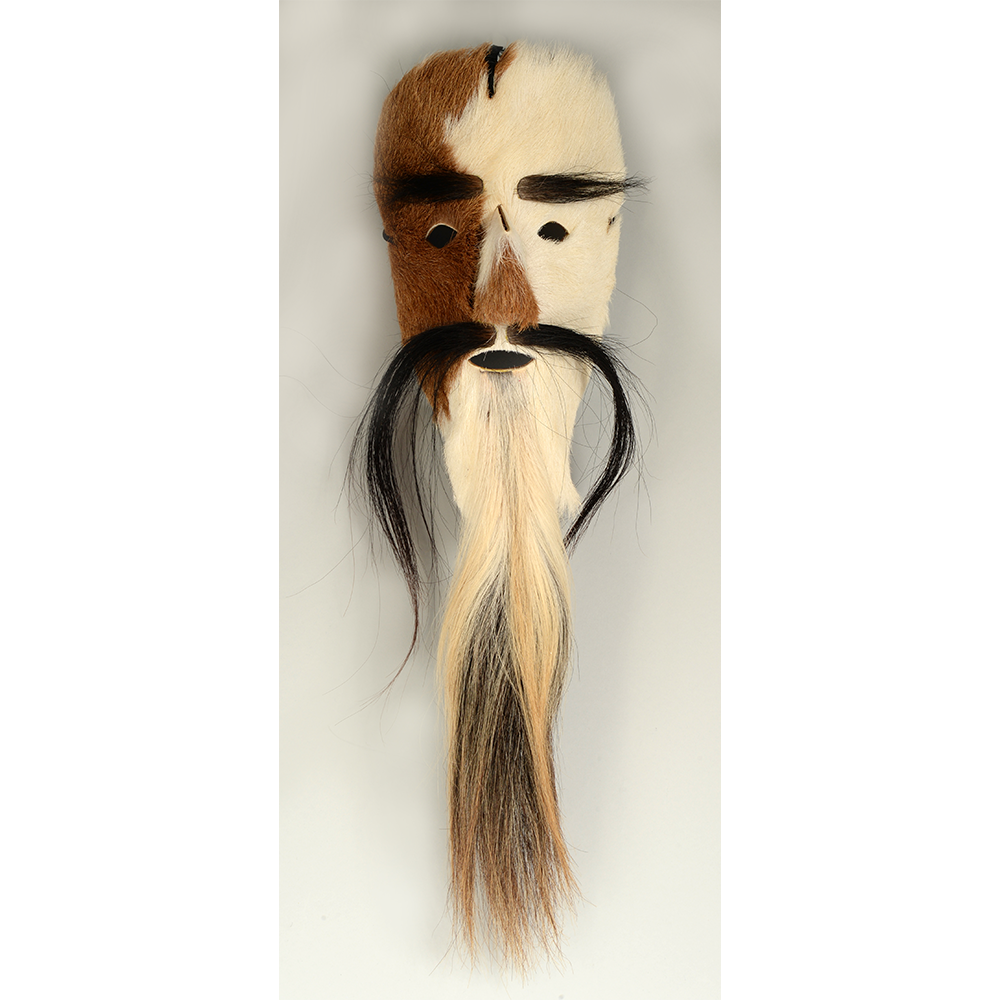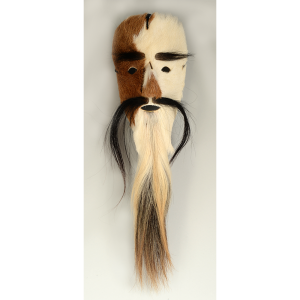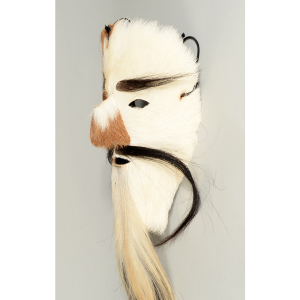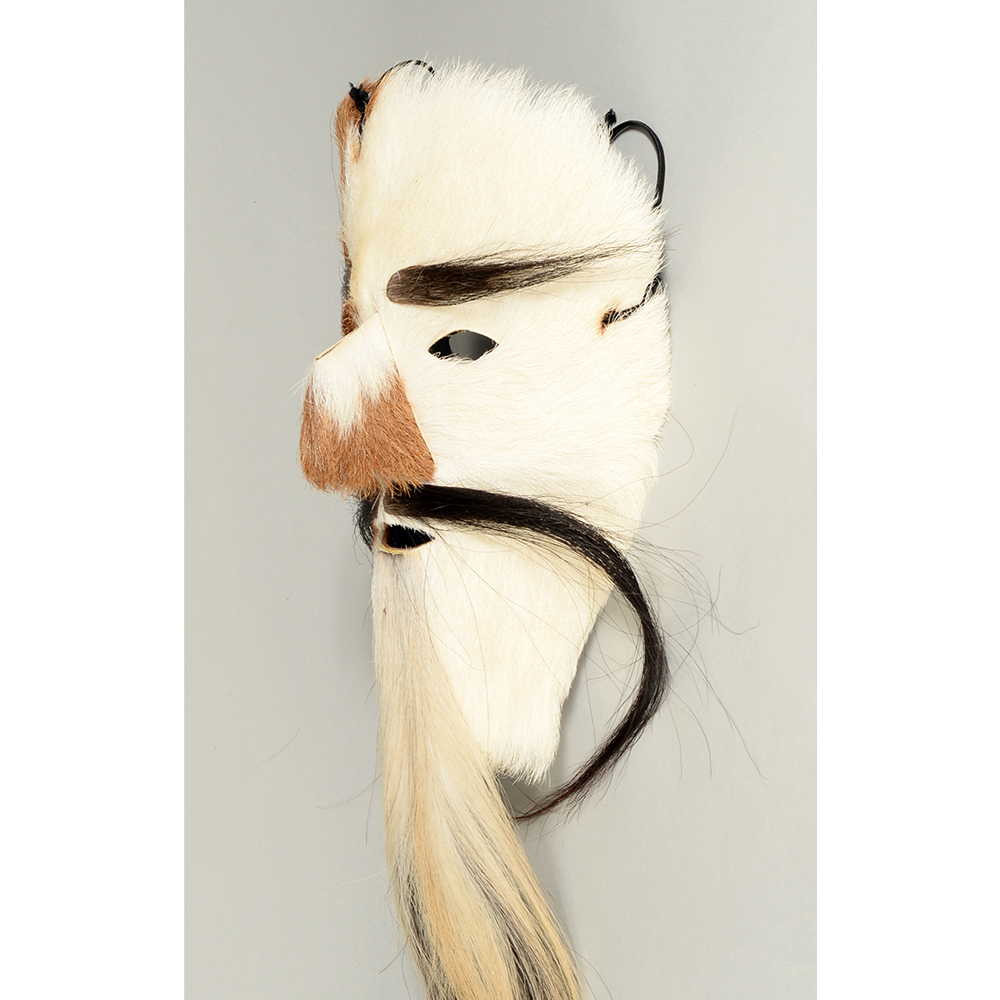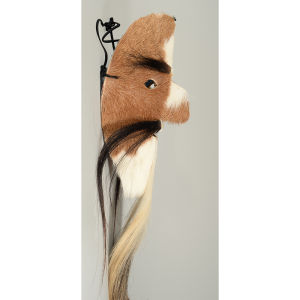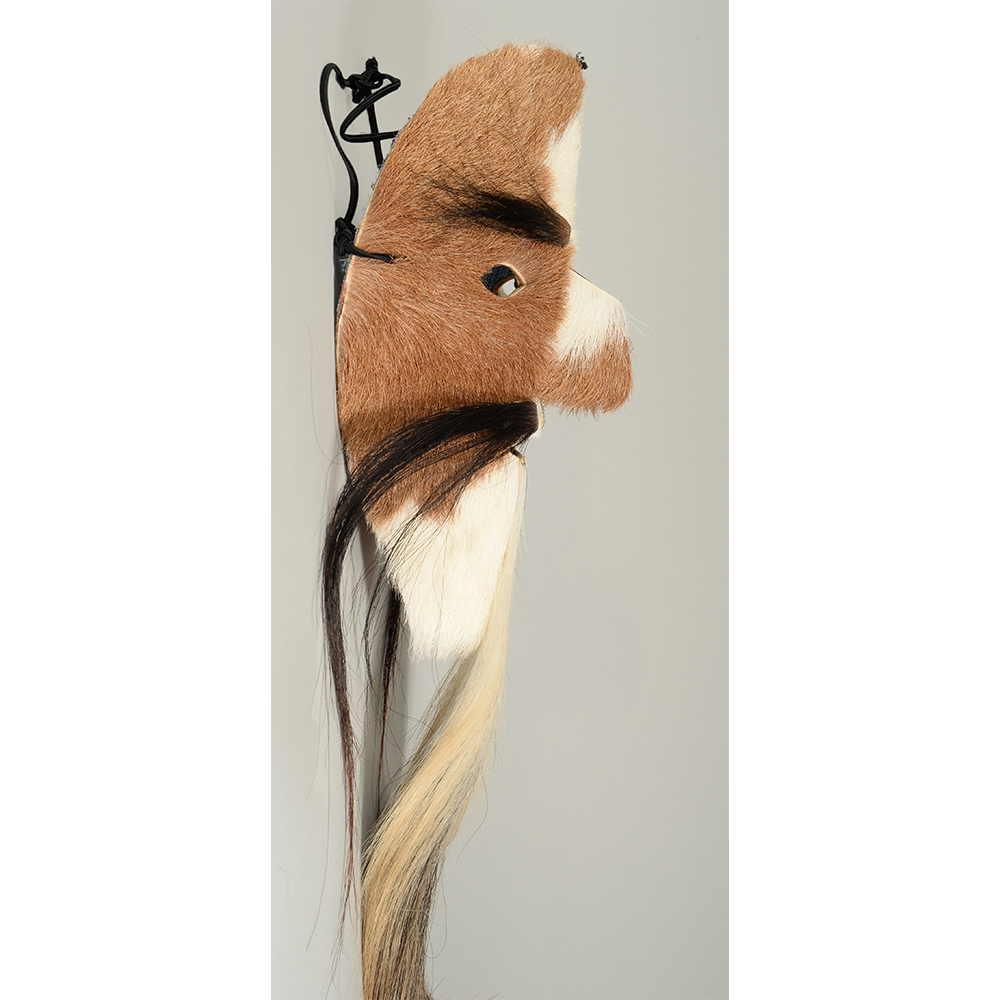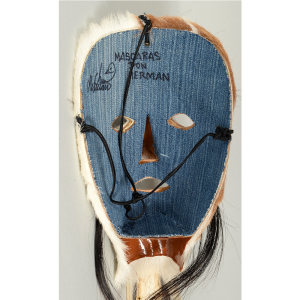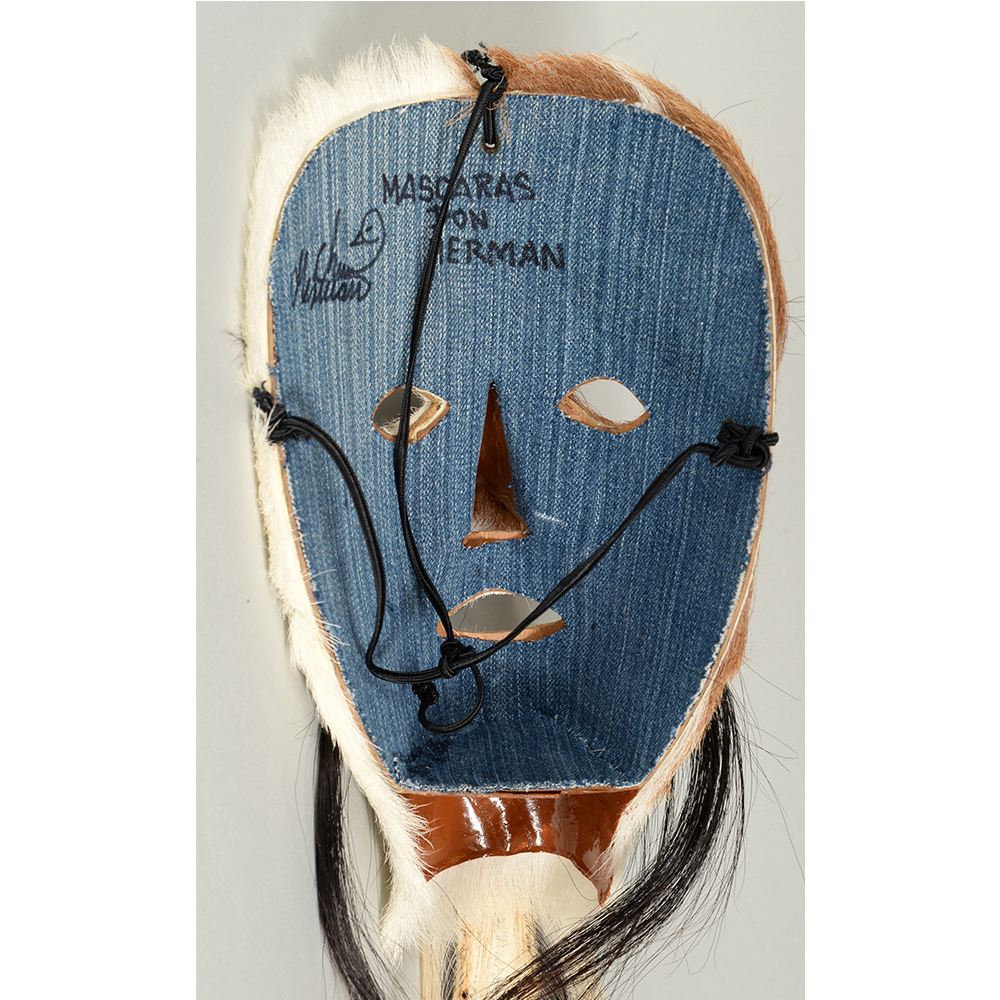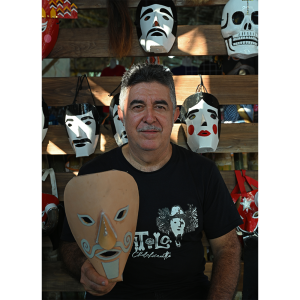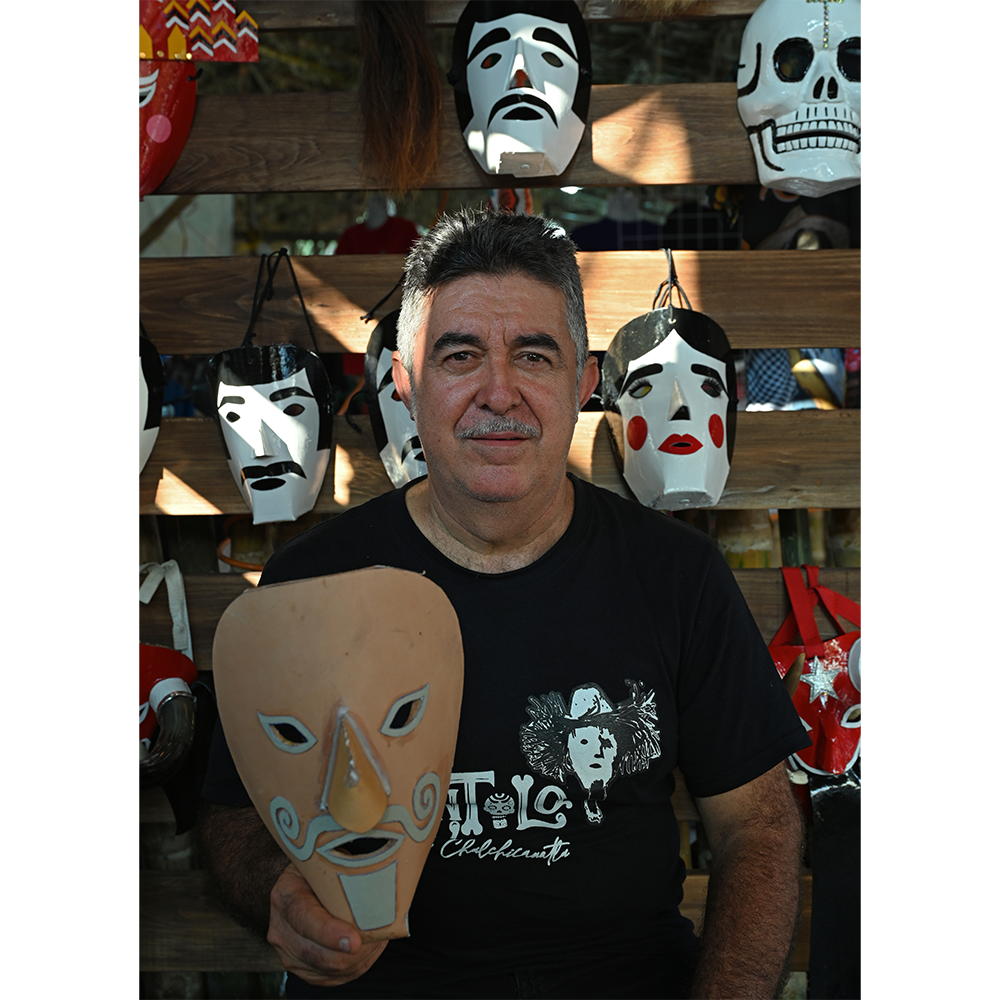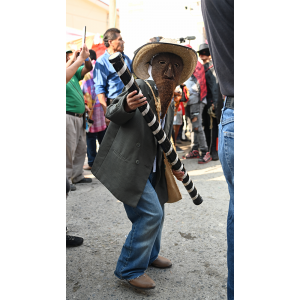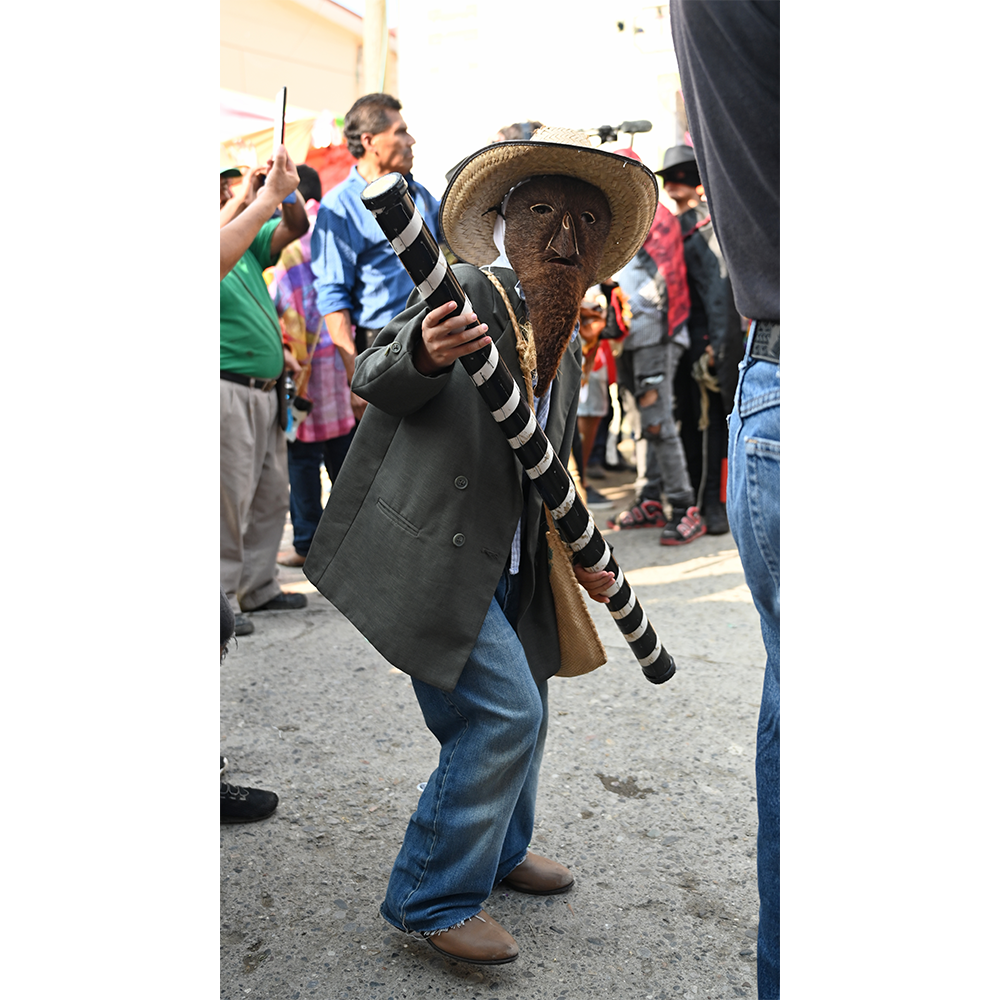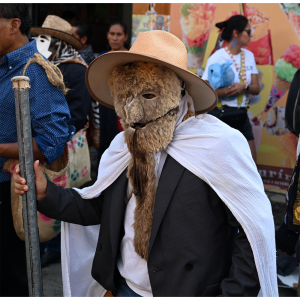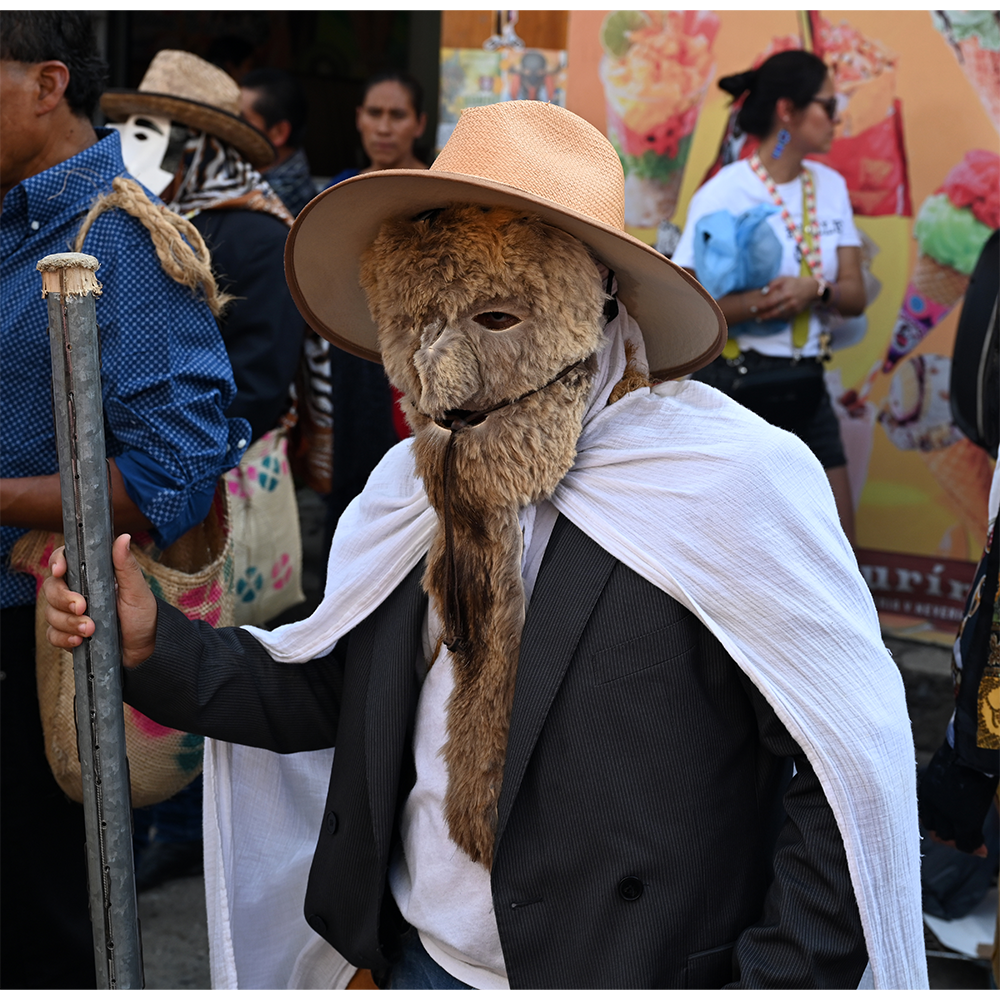TITLE: Xantolo El Cole Mask
TYPE: face mask
GENERAL REGION: Latin America
COUNTRY: Mexico
SUBREGION: San Luís Potosí
ETHNICITY: Nahua
DESCRIPTION: El Cole (The School) Mask
CATALOG #: LAMX117
MAKER: Herman Chávez Guerrero (1963- , San Martín Chalchicuautla)
CEREMONY: Day of the Dead (Xantolo)
AGE: 2022
MAIN MATERIAL: goat leather & fur
OTHER MATERIALS: stitching; cotton cloth; cow tail beard; glue; oil-based paint; elastic straps
Day of the Dead is celebrated in many parts of Mexico. In San Luís Potosí, the celebration is called Xantolo and differs from region to region. In the Huasteca region, some villages are primarily Nahua in ethnicity, and others are primarily Tenek. The village of San Martín Chalchicuautla is mainly Nahua. Xantolo in the Nahua language is called Miijkailjuitl, and it is celebrated with decorations of the graves of ancestors using flowers (primarily marigolds and coxcombs) and representations of the Catrina, an elaborate female skeleton figure. In San Martín, the celebration also includes masked dances to the music of guitars and violin.
The dance is fairly elaborate, with an outer ring of viejos (old men), viejas (old women), and two paired characters known as El Cole and La Mamanina. The middle ring is populated with diablos (devils) with varied appearances, but primarily having long ears, horns, and a long tongue. There is also a character called El Caminito, who resembles a horseman riding a toy wooden horse (and possibly intended to represent St. James the Apostle). The inner ring has at least one Catrina representing death, and male and female “Comanches,” meant to represent North American indigenous warriors, who carry whips. They dance in a circle, and at some point the Cole may flirt with the Mamanina or a vieja, satirizing a drunken and lecherous old man to the amusement of onlookers. The dances are repeated throughout the day, and the dancers are thought to lend their bodies to dead ancestors to participate in the celebration.
Click above to watch a short documentary film about the Xantolo celebration of the state of San Luís Potosí, Mexico.
